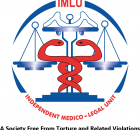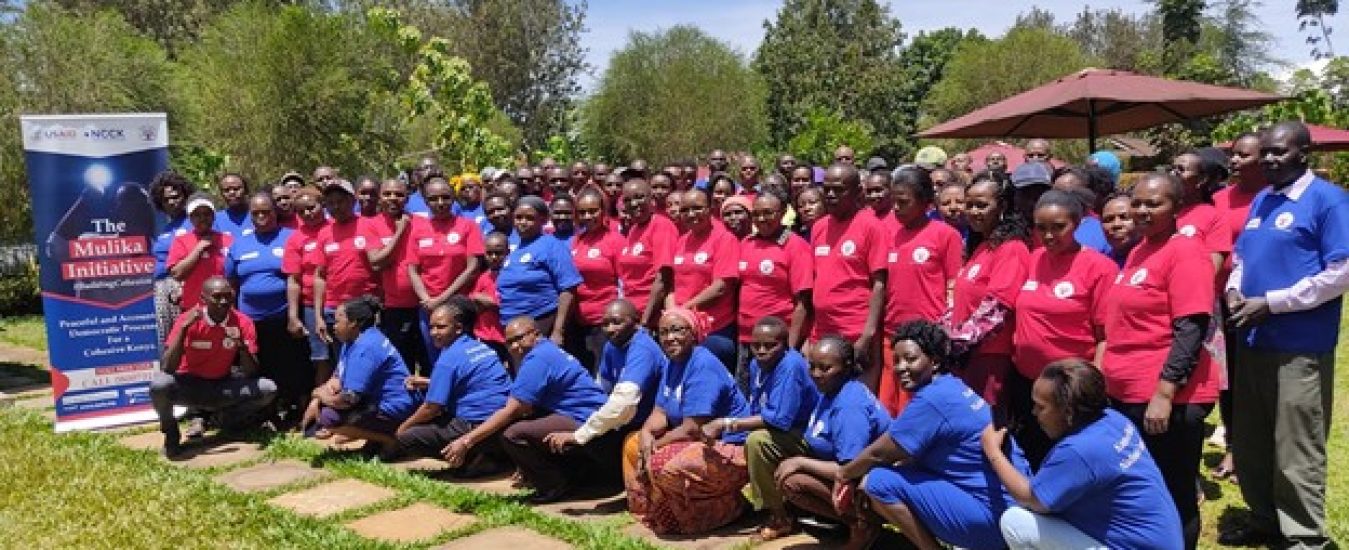By Amos Matirong
Over the last three decades, IMLU has supported more than 6,000 victims of torture, and cruel, degrading, and inhumane treatments. We have a national presence of over 300 professionals: doctors, trauma counsellors, lawyers, human rights monitors, and journalists.
Supported by USAID, IMLU monitored the 2022 general election by mapping and capacity-building election monitors and setting up an election hub where monitoring and reporting were taking place.
Post the 2022 general elections, IMLU has continued to navigate the elections journey but now focusing on post-election conflict and violence mitigation. This has been envisioned to come through organized forums to strengthen the capacity of local community peace structures to mitigate conflict, and inter and intra-community dialogues on cohesion, peace and security.
One such forum was one conducted in Murang’a on 21st March 2023 where youth, women, men and SIGs drawn from Central region, came together under the convening of IMLU to have an open forum of 2022 elections post analysis.
While in the discussions the residents raised pertinent issues that transpired before, during and the 2022 elections.
One such issue is youth participation and conduct. “Many youths me being one of them didn’t vote for many reasons, like for me I registered in a certain county but travelled back to my home county, only to find out that I can only vote in the county I left, we were also scared even though there was security.” Adding to Brian’s statement, Laureen Njoki, YWC Youth leader said, “Me kama youth sikuvote coz nmeloose Imani na Kenyan politicians, hao hutudanganya tu” meaning according to her she didn’t participate in the elections since she didn’t believe any of the aspirants to deliver their promises. Other issues raised by the participants which affected the youth participation are drug and substance abuse, lack of interest and being hired or bribed to either not vote or interrupt voting and procrastination, especially in registering as a voter. Other youths such as Josephine Kiarie said some youths were officials in the elections either as Monitors or IEBC officials hence some found themselves posted away from their stations. Winnie, a youth from Murang’a had a shocking story, she said, I quote, “some youth were bought with porridge and they gave in exchange their IDs. I have also realized politicians like to misuse us youth because we’re the easiest group to get”
On the issue of women, they lamented lack of support by the male gender, however there were concerns that women are also being used by the politicians to spread hate through songs and received peanut bribes to vote in a particular pattern, this is according to Aisha Muhammed and Priscilla Nyokabi Mwangi, who are leaders of Maendeleo ya Wanawake women group.
Men, not much was said about them though there were reports that men were molesting their wives and coercing them to vote in a particular direction. Women felt, men are not giving them support as it should
Members of the nyumba kumi present in the forum commended relative security in the region during the polls. However they condemned a few incidences where interruptions of different camps by rowdy youth and even police. Jesse Muiruri an elder from Karatina CPC said, “Though there was peace, incidences of hate speech were registered during the campaigns, for me NCIC, to some extend again failed in its mandate of conducting civic education and putting politicians to check, i think it should be disbanded”
Other issues the residents of Central Kenya thinks should be addressed for a peaceful and united country during and after the elections are, the nature of our politics, according to Martin Irungu, former aspirant and I quote, ” our politics should be about ideologies. We should maybe even have two or three parties on ideologies and shun the politics of ethnicity.” The other issue raised is introducing content in schools about patriotism to nurture a good culture in the youth. The participants also raised the issue of winner takes it all and the equal distribution of the national cake as things that should be addressed.
Persons with Disabilities and the elections
The training brought on board people representation persons with disabilities. Mr Warui, a PWD convener and member of Nyeri CPA highlighted a few things that affected them during the elections and even after the elections. This includes hate speech and pity, unfriendly polling stations structures, economic and social marginalisation, communication/language barriers, bribes and insecurity. According to him and I quote, “IEBC should ensure all polling stations are PWDs compliant, safeguard the place of PWDs and work on the communication to cater PWDs such as introducing sign language in the stations to guide those challenged differently.”
RECOMMENDATIONS AND WAY FORWARD
The community did not stop at listing the problems but went ahead to suggest solutions that address the challenges experienced every time we go to an election, mitigate conflict and build lasting peace. These include:
1. Changing the nature of winner takes it all after the elections: the residents felt, a system that looks more inclusive should be encouraged. They also urged that the winner should reined in a way that he/she will ensure equal distribution of resources. Nepotism, clientelism and partisan appointments should be added as a crime in Kenya.
2. Independence of institutions: the participants stressed that bodies such NCIC, DCI, ODPP, IEBC and all other independent bodies under the constitution should be allowed to operate independently for a peaceful country. They suggested that they should also have a sufficient and independent budget.
3. Encouraging Kenyans to appreciate our diversity and look at each other as a Kenyan and not an enemy.
4. Creation of the office of official opposition leader. They felt this could enhance checks and balances and equal distribution of resources.
5. More civic education for the populace.
As a way forward, the power holders unanimously agreed that since they came together as leaders of youth, women, religious, entertainment and PWDs organised, the message of peace and civic education should continue in their respective groups. Through their monitors in each county, IMLU will be receiving reports and keep in touch for future programming.
IMLU gave out its land line which free of charge for calls so that the groups can report any incidences of human rights violations.

